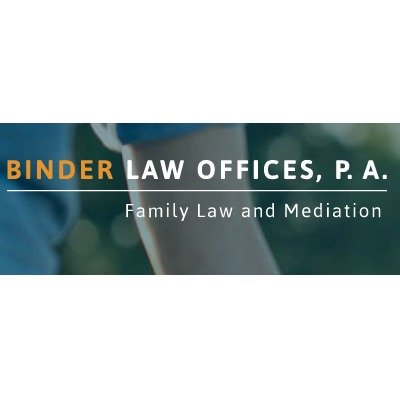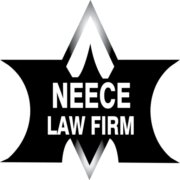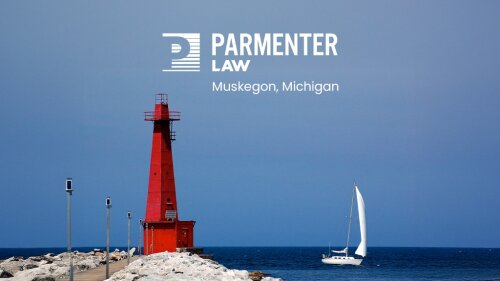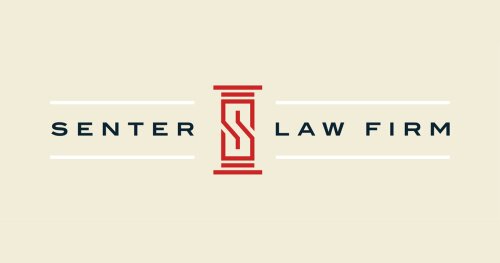Best Collaborative Law Lawyers in United States
Share your needs with us, get contacted by law firms.
Free. Takes 2 min.
Free Guide to Hiring a Family Lawyer
Or refine your search by selecting a city:
List of the best lawyers in United States
About Collaborative Law in United States
Collaborative Law, also known as Collaborative Practice, is a legal approach in the United States that focuses on resolving disputes amicably and without going to court. It is particularly popular in family law, especially for divorce and child custody cases. The process involves both parties working together with their lawyers to reach a mutually agreeable settlement. This method prioritizes open communication, transparency, and respect, aiming to reduce conflict and stress involved in traditional litigation.
Why You May Need a Lawyer
People may seek legal help in Collaborative Law for a variety of reasons, including:
- Divorce or Separation: Couples looking to separate amicably without litigation might choose Collaborative Law for its emphasis on cooperation and fair settlements.
- Child Custody Arrangements: Parents aiming to outline parenting responsibilities without courtroom battles might benefit from this process.
- Business Disputes: Business partners can utilize these techniques to settle disputes swiftly and amicably.
- Estate Planning Conflicts: Families dealing with estate planning or inheritance issues may choose collaborative methods to avoid family discord.
Local Laws Overview
While Collaborative Law is recognized nationwide, specific state laws may influence its application. Key aspects include:
- Confidentiality Agreements: Most states require parties to maintain confidentiality during the negotiation process, fostering open communication.
- Withdrawal Clause: Typically, if negotiations fail, the collaborative attorneys must withdraw before litigation, underscoring the commitment to finding a resolution.
- Consent to Participate: Parties must voluntarily agree to resolve conflicts collaboratively, emphasizing the consensual nature of the process.
- Involvement of Other Professionals: Some states may allow financial advisors, child specialists, or psychologists to be part of the process, offering holistic conflict resolution.
Frequently Asked Questions
What is Collaborative Law?
Collaborative Law is a legal process that enables parties to resolve disputes without going to court, emphasizing negotiation, mutual respect, and confidentiality.
How does Collaborative Law differ from mediation?
While both aim for amicable settlements, Collaborative Law involves legal representation for each party, whereas mediation is facilitated by a neutral third party without legal representation.
What types of cases are suitable for Collaborative Law?
Collaborative Law is primarily used in family law cases like divorce and child custody but can also be applied in business and estate planning disputes.
Is Collaborative Law cheaper than traditional litigation?
Often, yes. Collaborative Law can reduce the expenses associated with prolonged court battles and fees but still requires professional legal assistance.
Can any lawyer practice Collaborative Law?
No, lawyers need specific training in Collaborative Law methods to effectively facilitate this process.
What happens if the collaborative process fails?
If negotiations do not result in a settlement, the involved collaborative attorneys must withdraw, and the parties may proceed to litigation with new representation.
How long does the collaborative process take?
The timeline varies depending on the complexity of the issues but is generally shorter than traditional litigation due to its cooperative nature.
What are the main advantages of Collaborative Law?
Benefits include cost-efficiency, confidentiality, expediency, and preserving relationships by reducing animosity and focusing on mutual agreement.
What is the role of a lawyer in Collaborative Law?
A lawyer provides legal guidance, facilitates negotiation, ensures compliance with legal standards, and drafts the final agreement in accordance with the parties' decisions.
Do both parties need lawyers in Collaborative Law?
Yes, both parties should retain their collaborative-trained attorneys to ensure balanced representation and advocacy during the process.
Additional Resources
Here are some resources and organizations that can provide further assistance:
- The International Academy of Collaborative Professionals (IACP)
- American Bar Association's Section of Dispute Resolution
- Local state bar associations offering collaborative law resources
- Community mediation and dispute resolution centers
Next Steps
If you require legal assistance in Collaborative Law, consider the following steps:
- Research and identify experienced collaborative attorneys in your area.
- Schedule consultations to discuss your case and evaluate the attorney's fit for your needs.
- Ensure the attorney has specific training and experience in Collaborative Law.
- Engage in open discussions with your chosen attorney to understand the process thoroughly.
- Prepare to actively participate in the negotiation process with a cooperative mindset.
Lawzana helps you find the best lawyers and law firms in United States through a curated and pre-screened list of qualified legal professionals. Our platform offers rankings and detailed profiles of attorneys and law firms, allowing you to compare based on practice areas, including Collaborative Law, experience, and client feedback.
Each profile includes a description of the firm's areas of practice, client reviews, team members and partners, year of establishment, spoken languages, office locations, contact information, social media presence, and any published articles or resources. Most firms on our platform speak English and are experienced in both local and international legal matters.
Get a quote from top-rated law firms in United States — quickly, securely, and without unnecessary hassle.
Disclaimer:
The information provided on this page is for general informational purposes only and does not constitute legal advice. While we strive to ensure the accuracy and relevance of the content, legal information may change over time, and interpretations of the law can vary. You should always consult with a qualified legal professional for advice specific to your situation.
We disclaim all liability for actions taken or not taken based on the content of this page. If you believe any information is incorrect or outdated, please contact us, and we will review and update it where appropriate.
Browse collaborative law law firms by state in United States
Refine your search by selecting a state.
















